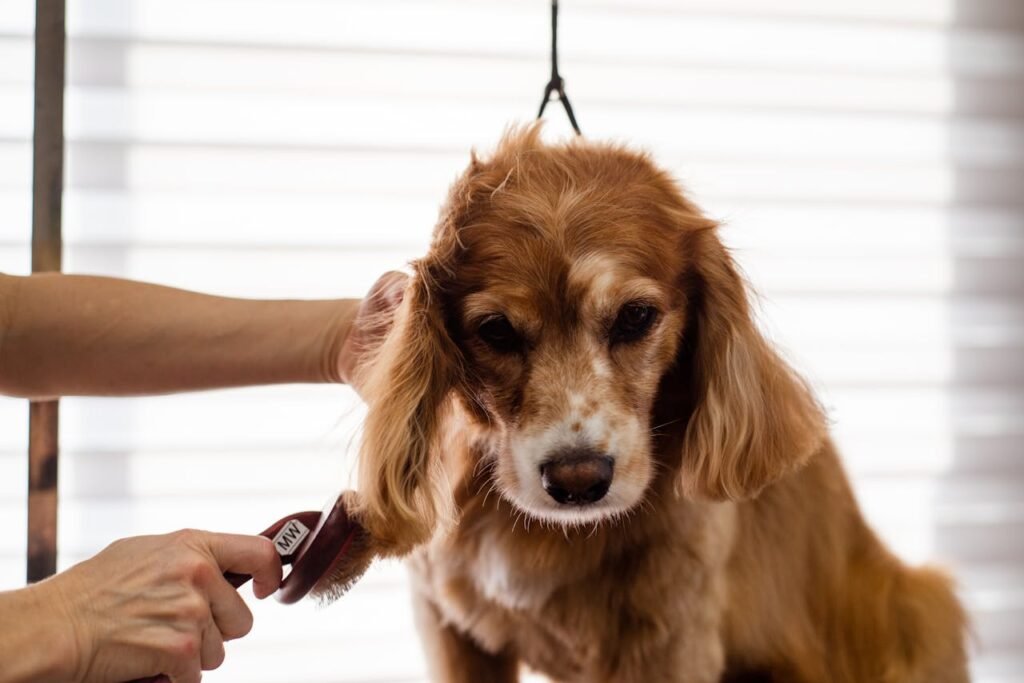7 Tips for Keeping Your Dog’s Teeth Clean. Discover 7 simple tips To keep your dog’s teeth clean & healthy! Easy & effective ways To ensure your furry friend has a bright. Happy smile.
7 Tips for Keeping Your Dog’s Teeth Clean
Establish a Regular Routine
Creating a consistent schedule for dental care ensures dogs receive necessary attention. It helps dog owners build habits that promote healthy teeth and gums. By dedicating time each week specifically for brushing or oral care products. Maintaining good dental hygiene becomes manageable.
Start by selecting a specific day and time for dental sessions. Regularity not only fosters familiarity but also prepares dogs psychologically. Moreover. Dogs often adapt well when they know what to expect. Thus reducing anxiety during teeth cleaning.
Consider integrating oral care into existing routines. Such as grooming or playtime. Synchronizing this process helps create an enjoyable experience. Treats or praise can further motivate dogs. Reinforcing positive associations.
Choose Appropriate Dental Products
Selecting quality toothpaste and toothbrushes designed specifically for dogs plays a crucial role in effective cleaning. Human toothpaste often contains xylitol. Which is toxic to dogs. Thus should be avoided at all costs. Fortunately. Numerous brands offer flavorful toothpaste suitable for canine tastes.
Using a toothbrush designed for dogs can enhance toothbrush technique. Brushes with softer bristles are ideal for sensitive gums. Finger brushes might also be a good option. Making it easier for pet owners to reach those tricky spots.
Various dental chews and water additives complement brushing efforts well. Options like dental bones or treats cater specifically to promoting oral hygiene while satisfying a dog’s natural chewing instinct. Moreover. Inspecting ingredients allows owners to choose products free of harmful additives.
Incorporate Dental Chews into Their Diet
Integrating dental chews into dog diets can substantially benefit oral health. These chews help reduce plaque and tartar buildup through chewing. Look for products that have undergone veterinary approval for efficacy.
Chewing promotes saliva production. Which aids in naturally cleaning teeth. Saliva helps neutralize acids produced by bacteria. Thus combating tooth decay. Selecting chews appropriate for a dog’s size ensures effectiveness while preventing potential choking hazards.
Many dogs particularly enjoy dental treats or longlasting chews. Which can supplement regular diets magnificently. As these products come in various flavors. Seeking options that dogs find palatable encourages consistent use. Ultimately supporting oral health.
Schedule Regular Veterinary Checkups
Periodic checkups with a veterinarian specialize in dental care can significantly improve a dog’s overall health. Professional cleanings allow for thorough inspections that home care might miss. Regular visits help identify potential issues before they escalate.
During these visits. Veterinarians can educate pet owners about best practices for dental hygiene. Owners often overlook particular techniques or tools. So expert insight provides invaluable guidance. Discussing questions regarding any concerns with a trusted vet fosters beneficial practices.
Moreover. Maintaining an open line of communication ensures owners stay updated on new dental products or treatments available. Routine checkups not only protect canine oral health but promote overall wellness.
Brush Your Dog’s Teeth Regularly
Consistent brushing serves as one of most effective methods for maintaining canine dental hygiene. Aim for at least two to three times per week for optimal benefits. Regular brushing removes plaque before it hardens into tartar.
Establish a familiar environment for brushing sessions. Comfortable settings help dogs relax. Making them more amenable to oral care. Gradually introducing brushing techniques allows dogs to adapt well without feeling overwhelmed.
For stepbystep guidance on how to brush a dog’s teeth effectively. Visit this helpful resource. Supplementing brushing with additional tools enhances health. Like finger brushes or specialized devices. To suit specific canine needs.
Monitor Their Diet and Treats
Paying attention to diet contributes significantly towards maintaining clean teeth. Certain foods. Like kibble. Can help scrape off plaque as dogs chew. Opt for products specifically formulated for dental health. Avoid sugary treats or snacks that promote plaque accumulation.
Choosing organic options may benefit dogs tremendously while ensuring a balanced diet that supports their overall health. Consulting with veterinarians regarding suitable diets further informs choices. Promoting longevity and vitality.
Incorporating probiotics into dog diets may aid in reducing harmful bacteria in mouths. These supplements foster a healthier oral environment. Thus decreasing bad breath and plaque buildup. Always ensure ingredients align with selected diets for maximum effectiveness.
Utilize Water Additives
Water additives offer a convenient alternative for maintaining oral hygiene. These products work by reducing bacteria and controlling plaque levels. Adding a simple solution to dogs’ drinking water can produce noticeable benefits for teeth and gums.
A plethora of options exists. Ranging from simple antibacterial solutions to those containing enzymes that promote oral health. Regularly changing the water encourages hydration. Helping dogs develop healthy drinking habits.
Before introducing any additives. Verifying ingredients ensures safety. Gradual introduction helps dogs adjust while noting changes in breath or dental health. Positive reactions from dogs reinforce usage. Ultimately supporting better dental hygiene.
Be Aware of Changes in Behavior
Owners should closely monitor canine behavior for signs of dental issues. Excessive drooling. Difficulty chewing. Or unusual pawing at mouths may indicate underlying problems. Prompt attention to these changes can prevent further complications.
Odd smells from mouths can also suggest possible dental concerns. Regular checks for bad breath. Along with monitoring eating habits. Helps identify any issues that require professional intervention. Being proactive fosters better outcomes for dogs.
Consulting with veterinarians upon noticing behavioral changes ensures potential dental issues receive timely attention. Early detection not only prevents pain but enhances overall quality of life for pets.
Be Consistent with Oral Care
- 🐾 Establish Routine
- 🦷 Use Quality Dental Products
- 🥩 Integrate Dental Chews
- 🩺 Schedule Vet Checkups
- ✨ Focus on Diet
Comparison of Dog Dental Care Techniques
| Technique | Effectiveness | Ease of Use | Cost |
|---|---|---|---|
| Brushing 🪥 | High | Medium | Low |
| Dental Chews 🍖 | Medium | High | Medium |
| Veterinary Checkups 🩺 | Very High | Low | High |
| Water Additives 💧 | Medium | High | Low |
Personal experience significantly helped me understand importance of said tips for keeping dog’s teeth clean. My canine experienced dental issues that could have prevented through regular brushing and vet checkups. By consistent effort. I encouraged better oral care habits that improved overall health.
Seeking additional guidance on maintaining your pet’s oral hygiene? Visit Haven for Pet Care for more insights.
Discover 7 simple tips To keep your dog’s teeth clean & healthy! Easy & effective ways To ensure your furry friend has a bright. Happy smile.

What are The best tools for brushing my dog’s teeth?
Using a dogspecific toothbrush & toothpaste is essential for effective teeth cleaning. Dog toothbrushes are designed with soft bristles & a comfortable handle. While dog toothpaste is formulated To be safe & palatable for pets. Regular brushing with these tools can significantly improve your dog’s dental health.
How often should I brush my dog’s teeth?
Ideally. You should brush your dog’s teeth at least two To three times a week. However. Daily brushing is preferred for optimal dental health. Establishing a routine will help your dog get used To The process. Making it easier over time.
What dietary options can help keep my dog’s teeth clean?
A balanced diet featuring dentalfriendly kibble can help reduce plaque buildup. Additionally. Dental chews & treats formulated To promote oral health can aid in cleaning your dog’s teeth while also providing a tasty reward. Always consult your veterinarian for recommendations tailored To your dog’s specific needs.
Conclusion
Keeping your dog’s teeth clean is essential for their overall health & happiness. By following these seven simple tips. You can help prevent dental problems & keep their smiles bright. Regular brushing. Using dental treats, & scheduling vet checkups are all key steps. Don’t forget The importance of a healthy diet & plenty of chew toys for added dental health. Remember. A little effort goes a long way in maintaining your furry friend’s teeth. So. Start today & make dental care a fun & rewarding part of your dog’s routine! Your pup will thank you with happy. Wagging tails!


